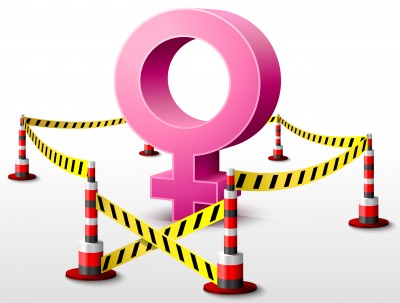The past 20 years have witnessed an ever growing movement to moralize motherhood, from the endless restrictions on what pregnant women can consume (most of them, like the prohibition on alcohol, far outstripping any scientific evidence), the moralization of infant feeding and public pressure to breastfeed (once again far outstripping any scientific evidence), and the promotion of intensive mothering (attachment parenting) whereby the mother’s “real” work is to stay home and raise children. This moralization of motherhood has been justified as an attempt to recapture the supposedly superior lifestyle of our foremothers. But in truth it has nothing to do with science and everything to do with fear of women’s emancipation.
How can I be sure? Because there has been no comparable attempt to moralize fatherhood or return it to the supposedly superior lifestyle of our ancestors. There is nothing equivalent for fathers to the holy trinity of natural mothering (natural childbirth, breastfeeding and attachment parenting).
- When was the last time you saw people claiming that “good” fathers demonstrate their love for their wives and children by killing game animals and dragging them home?
- When was the last time you saw men escorted out of the delivery room because traditional societies do not allow fathers at childbirth?
- Where are the restrictions on what men can consume, justified by the desire to keep their sperm safe for maximum fertility?
- When was the last time you saw fathers harassing each other over who is the more natural father?
Never, right? And that’s not a coincidence.
Obviously any large social movement, like the movement to moralize motherhood within industrialized societies, is complex and multifactorial. Nonetheless, a significant impetus for the movement to moralize motherhood is to return to the olden days … for women, but not for men.
That’s why there are mommy wars, but no daddy wars.
As the pressure mounts on young women, it’s time for a wholesale reassessment of what is really driving the promotion of intensive mothering. Is it really about what’s best for children or is it about what returns women to the home and keeps them from achieving professional and economic success?
I hear the natural mothering crowd yelling that it’s about “the science.” But if the last 20 years have shown us anything it is that “the science” is weak, conflicting and riddled with confounding variables. We cannot pin down the answer to something as basic as whether it is good or bad for children if their mothers work and the reason we cannot pin it down is that there is no one answer. It depends; it depends on the individual mother, and individual child and the life circumstances of the family. It’s just like breastfeeding, where “the science” is also quite fuzzy no matter how much lactivists insist otherwise. That’s because the greatest danger of not breastfeeding comes from contaminated water used to prepare it and that’s not a problem in first world countries. Is breastfeeding better for babies than formula feeding? It depends; it depends on the individual mother, the individual baby and the life circumstances of the family.
The weak “science” of breastfeeding and the weak “science” on working mothers is stronger by far that any science on natural childbirth or attachment parenting. That’s because there is no science at all to support either of those two components of the holy trinity of natural mothering.
And what does the science show about fathering in nature? No one knows, because virtually no one is looking.
In part that reflects the importance of mothers during pregnancy and early infancy, but, I would argue, it also reflects the fact that we use mothering to control women while there is no comparable effort at all to control men through fathering.
As a society we need to step back and ask ourselves why we are placing such pressure on new mothers and why we are demanding that women accede to the imperatives of intensive mothering (and shame them for not doing so), while paying no attention to fathering.
Is this really about what’s best for children? Is this really about “the science”? Or is this yet another, albeit thoroughly modern, way to control women?


